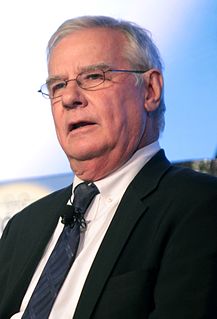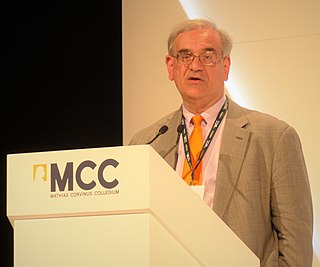A Quote by Thomas R. Cech
I think there is value in having practising scientists as leaders of research institutions.
Quote Topics
Related Quotes
Monsanto will not come empty-handed. Monsanto will come with a big bag of money. And because these governments are poor, when they are shown money for their research institutions, for their universities, for their professors, they are very quick to say yes, and I can tell you that when Monsanto came to Kenya, they were able to be given permission to do research in one of our research institutions, and yet there was not a single law to control such research.
As Americans, we rightfully place tremendous value on having a free and independent press. Our role as journalists is to give voice to the voiceless, and hold our leaders and institutions accountable. But the circle is only completed when that information is consumed by a free-thinking and engaged audience.
As Americans we rightfully place tremendous value on having a free and independent press. Our role as journalists is to give voice to the voiceless, and hold our leaders and institutions accountable. But the circle is only completed when that information is consumed by a free thinking and engaged audience.
The conference also has a moral duty to examine the corruption of science that can be caused by massive amounts of money. The United States has disbursed tens of billions of dollars to climate scientists who would not have received those funds had their research shown climate change to be beneficial or even modest in its effects. Are these scientists being tempted by money? And are the very, very few climate scientists whose research is supported by industry somehow less virtuous?
Science has long been in the value business. Despite a widespread belief to the contrary, scientific validity is not the result of scientists abstaining from making value judgments; rather, scientific validity is the result of scientists making their best efforts to value principles of reasoning that link their beliefs to reality, through reliable chains of evidence and argument.
The institutions that claim to represent God, when they are not ignored altogether, are treated like other human institutions that have to earn their right to a hearing by the value of what they say, and not by virtue of who is saying it. Today, authority has to earn respect by the intrinsic value of what it says, not by the force of its imposition.
We sometimes talk as if "original research" were a peculiar prerogative of scientists or at least of advanced students. But all thinking is research, and all research is native, original, with him who carries it on, even if everybody else in the world already is sure of what he is still looking for.
What is the value of having millions of people in Iraq not having a repressive regime? What is the value of having the Iraqi regime not shooting at UK and US aircraft almost every day? What is the value of the Iraqis having a free press? What is the value of the foreign minister of Iraq going to Paris, calling for an end of the Gadhafi regime and citing Iraq as a model, as an example, that in fact a freer political system can exist in that part of the world?




































